The Prime Minister approved the Project "Making English the second language in schools in the period 2025-2035, with a vision to 2045". The Project was issued together with Decision No. 2371/QD-TTg dated October 27, 2025.
Helping students develop their abilities and integrate internationally.
Globally, English is the official or second language in 54 countries and 27 territories, including the UK, the US, Canada, Australia, India, Singapore, Malta, Hong Kong, and Taiwan. These countries and territories have advanced science and technology, strong economies , and their combined GDP accounts for 45% of global GDP (in 2023).

Ms. Le Thi Thanh Huyen and students of Chau Son Primary School (Ba Vi, Hanoi) during an English lesson (Photo: Education and Times)
Furthermore, English is the primary language of international scientific publications (accounting for up to 95% of international scientific publications annually), and 63% of information and communication content on international media channels is in English. Many leading universities in non-English speaking countries also offer advanced programs in English to help students access advancements in science and technology worldwide.
In Vietnam, the foreign language proficiency of students is constantly improving; foreign language teachers and lecturers receive regular and periodic training in foreign language and pedagogical skills, basically meeting the requirements of innovation. However, the implementation of teaching English as a foreign language in schools has not yet fully met the language needs of learners (listening, speaking, reading, writing), thereby helping them become global citizens and effectively serving international integration.
In this context, teaching English as a foreign language needs to be elevated to teaching it as a second language to help students develop their abilities, use English in academic activities, access resources, utilize digital tools and artificial intelligence (AI), and integrate internationally in a practical and effective way.
Establishing an English-speaking ecosystem in educational institutions.
The objective of the Project is to make English the second language in schools in Vietnam; to widely, frequently, and effectively use English in teaching, communication, management, and educational activities of schools, forming an English-speaking ecosystem in educational institutions from Level 1 to Level 3.
Improving the quality of English language teaching and teaching in English will contribute to building a generation of global citizens who meet the requirements of Vietnam's international integration.
For preschool education, the goal of the Project is to help children experience and become familiar with English; aiming to form and develop English communication skills, and to prepare them well for learning English at the secondary school level.
For general education, the objective of the Project is to help students develop their English language skills and abilities in developing critical thinking and qualities, as well as their learning abilities in various subjects, educational activities, exchanges, and experiences both inside and outside the school, contributing to the holistic development of Vietnamese people in the era of deep international integration.

Ms. Le Thi Thanh Huyen and her students during an English lesson (Photo: Education and Times)
For higher education, the project aims to develop an effective English-speaking environment in teaching courses, modules, and credits within training programs; and in training and developing teachers and lecturers. It also aims to develop higher education into a leading national pillar within the English-speaking ecosystem, with the capacity for deep integration, knowledge transfer, and innovation using English.
For vocational education, the project aims to improve English language proficiency in communication and career guidance, meeting the requirements of the domestic and international labor markets. It also aims to develop an effective English-speaking environment within vocational education institutions.
For continuing education, the project aims to improve English proficiency for learners in continuing education programs, diversify the forms and content of English learning to meet the diverse needs of society, and contribute to improving the quality of the national workforce.
We need an additional 22,000 English teachers for preschool and primary school.
The project will be implemented in all preschools, primary and secondary schools, universities, vocational schools, and continuing education institutions nationwide. It is estimated that the project will impact approximately 50,000 educational institutions, affecting nearly 30 million children, students, and about 1 million administrators and teachers across all levels, disciplines, and training programs.
The project will be implemented over a period of 20 years (from 2025 to 2045) in three main phases.
In particular, Phase 1 (2025-2030) will focus on building and standardizing the foundation, ensuring a solid basis for the regular and systematic use of English in the educational environment.
Phase 2 (2030-2035) will expand and strengthen, promoting the more frequent use of English.
Phase 3 (2035-2045) will focus on perfecting and enhancing English usage, making it more natural, and developing an English-speaking ecosystem in education, communication, and school administration.
Regarding resource requirements, after the Project is issued, central and local agencies and organizations subject to the Project's regulations are responsible for its implementation.
Specifically, for the preschool level, to successfully implement the Project, one English teacher position is needed per preschool institution. Therefore, it is projected that an additional 12,000 English teacher positions will be needed in public preschools nationwide.
For primary schools, to ensure a solid foundation and the successful achievement of the Project's objectives, the Ministry of Education and Training proposes implementing compulsory English teaching from grade 1 of the General Education Program (currently compulsory from grade 3). This will result in an increase of approximately 10,000 English teachers in primary schools nationwide.
In addition, it is necessary to train and improve English language skills and professional pedagogical competence for at least 200,000 teachers who teach in English from now until 2035 to meet the needs and objectives of the Project.
Source: https://vtcnews.vn/tieng-anh-se-tro-thanh-mon-hoc-bat-buoc-tu-lop-1-ar984009.html






![[Image] Vietnam's colorful journey of innovation](/_next/image?url=https%3A%2F%2Fvphoto.vietnam.vn%2Fthumb%2F1200x675%2Fvietnam%2Fresource%2FIMAGE%2F2025%2F12%2F14%2F1765703036409_image-1.jpeg&w=3840&q=75)







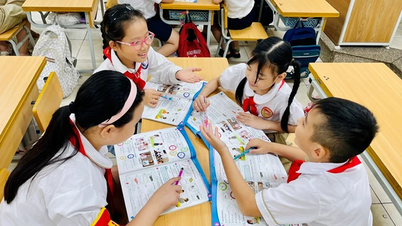

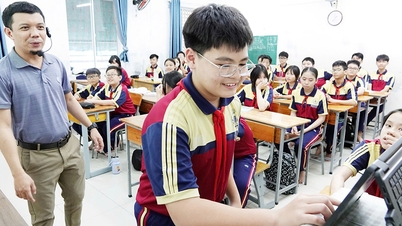

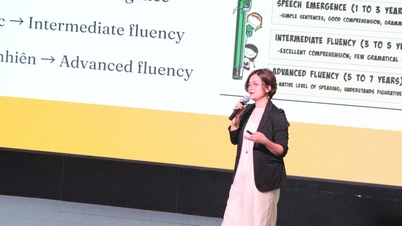








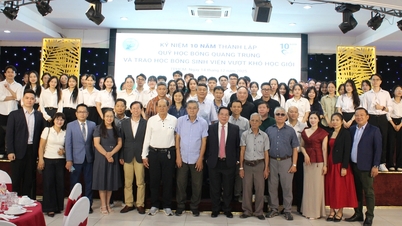















































![[Image] Vietnam's colorful journey of innovation](https://vphoto.vietnam.vn/thumb/402x226/vietnam/resource/IMAGE/2025/12/14/1765703036409_image-1.jpeg)









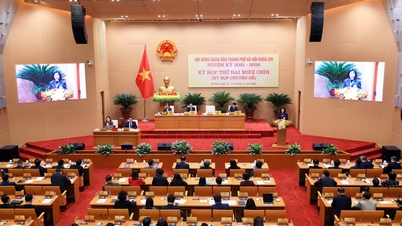




























Comment (0)